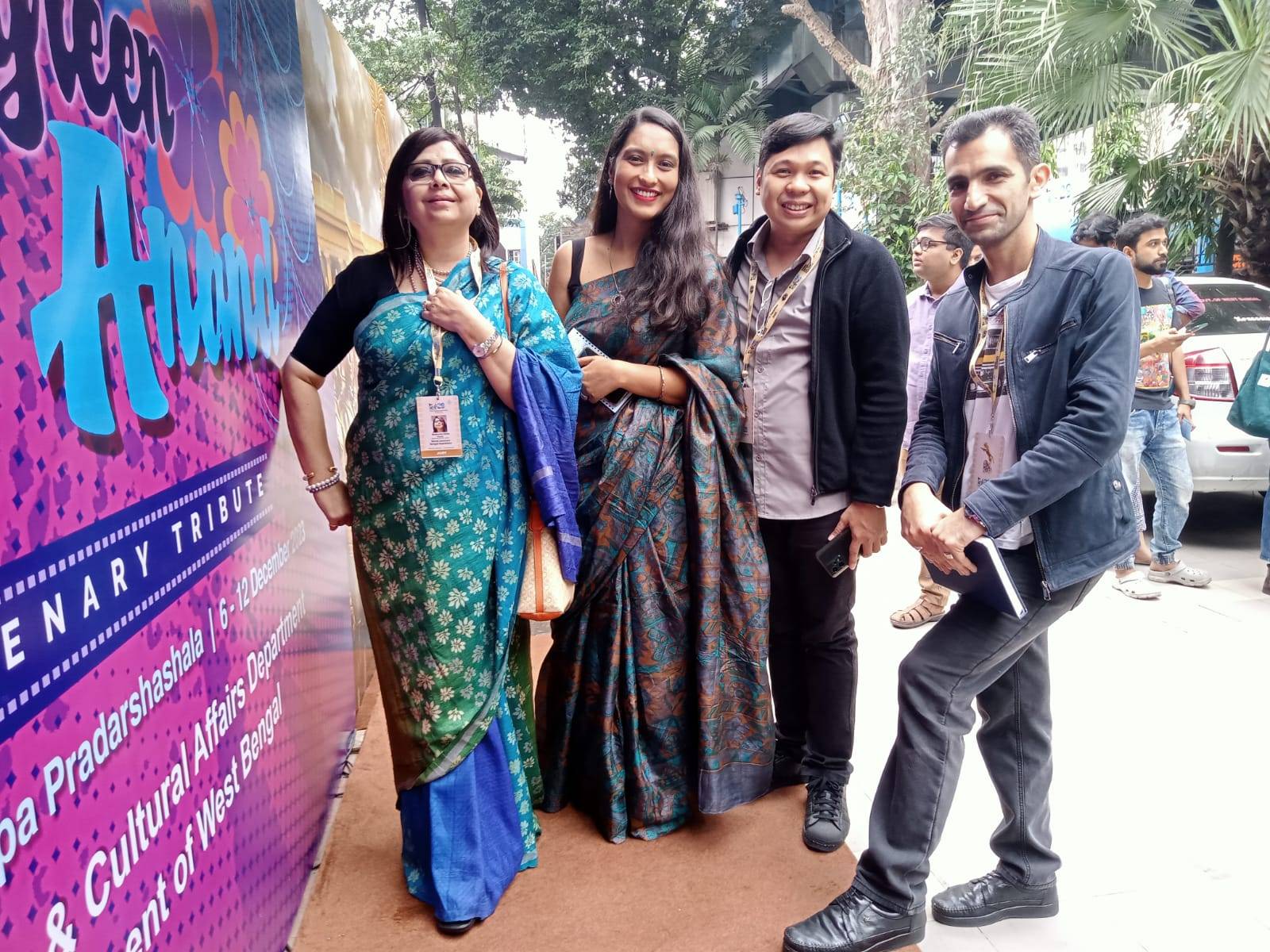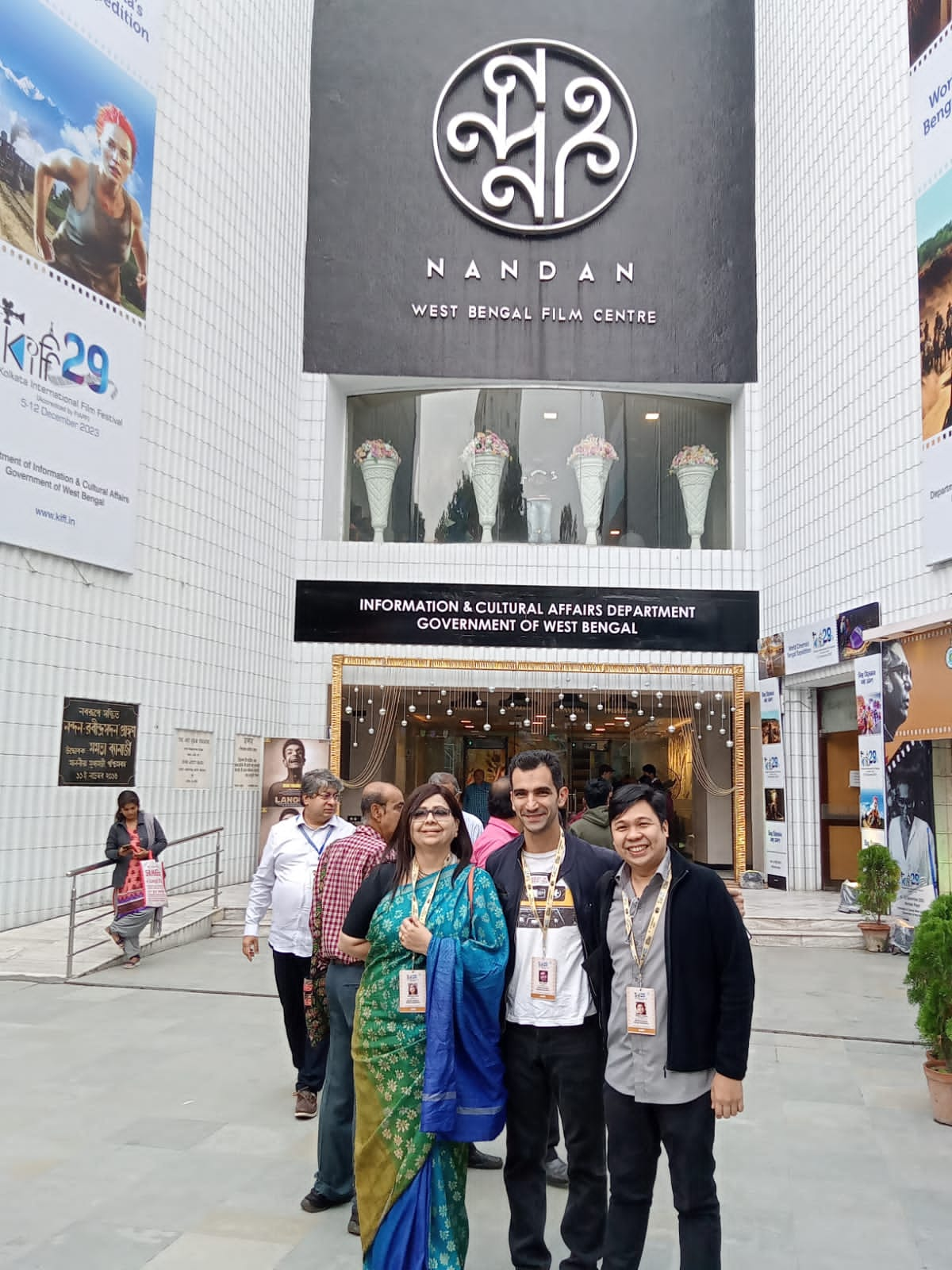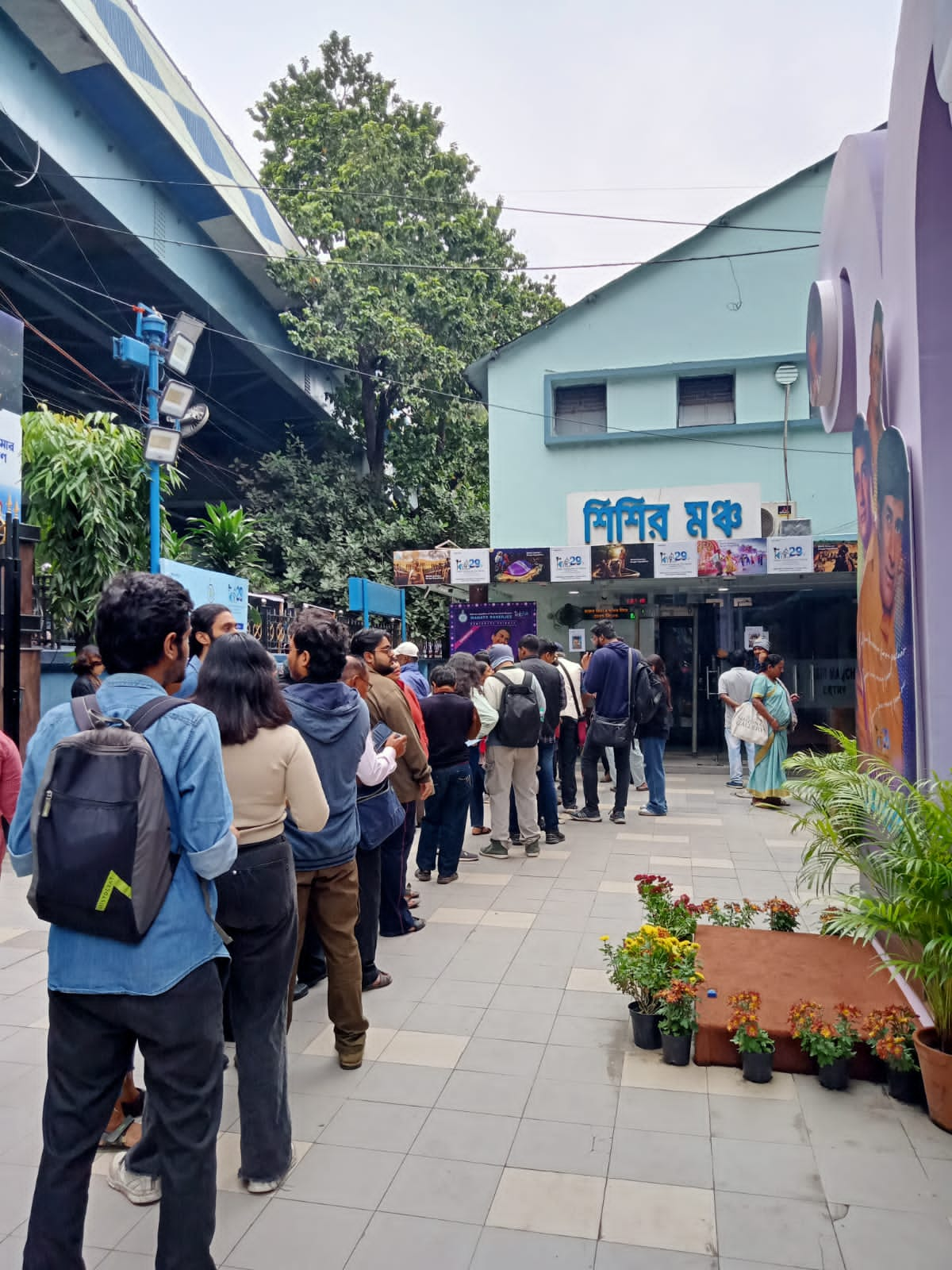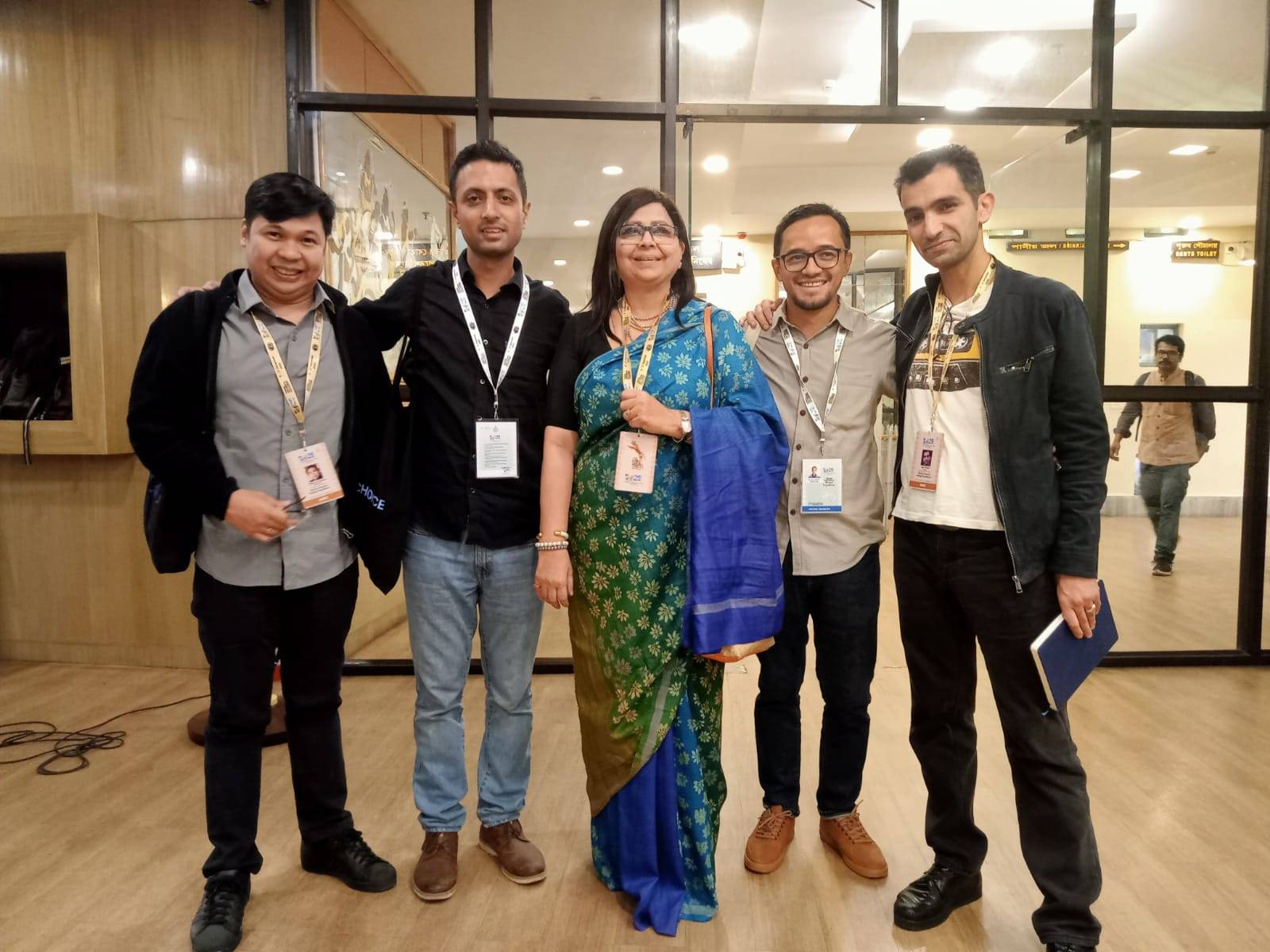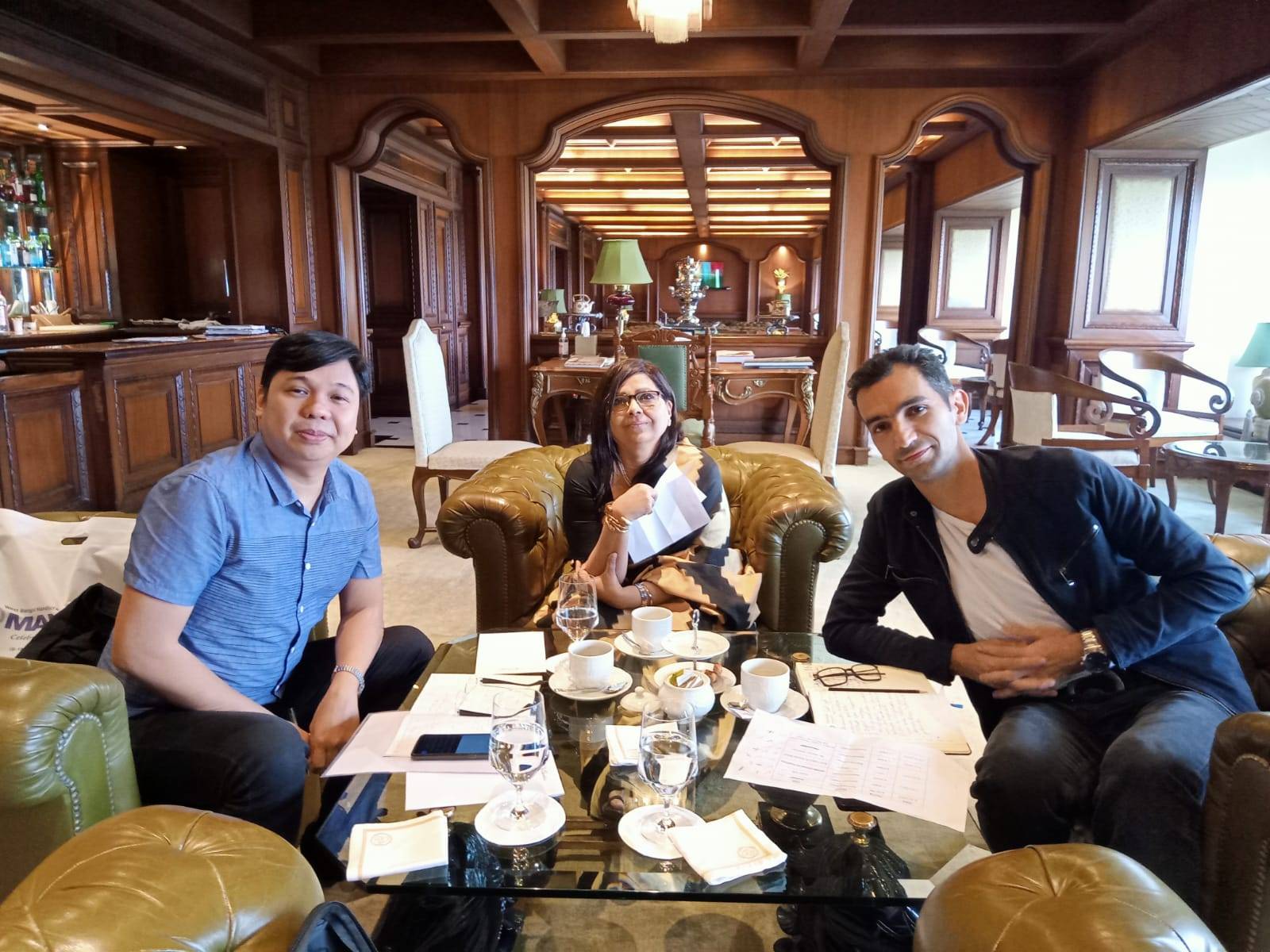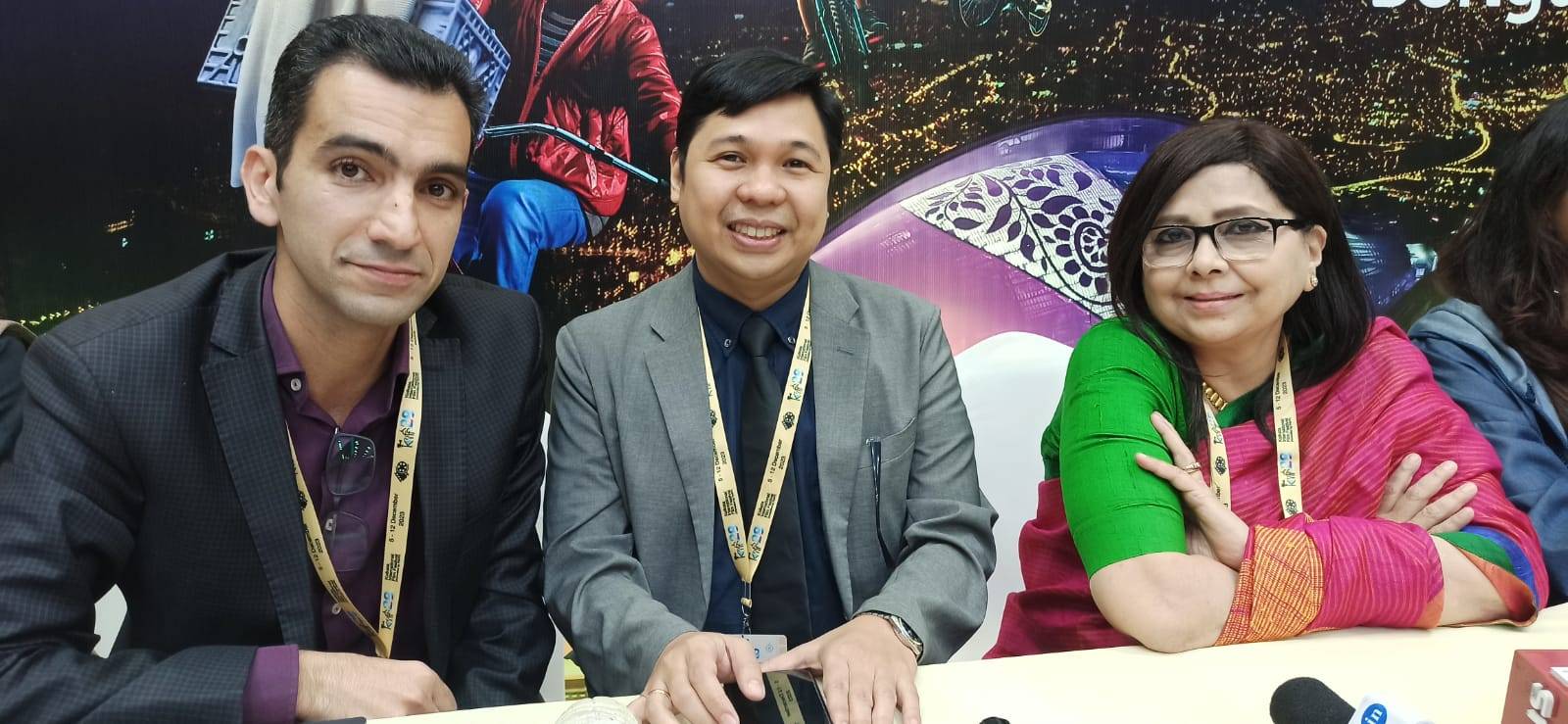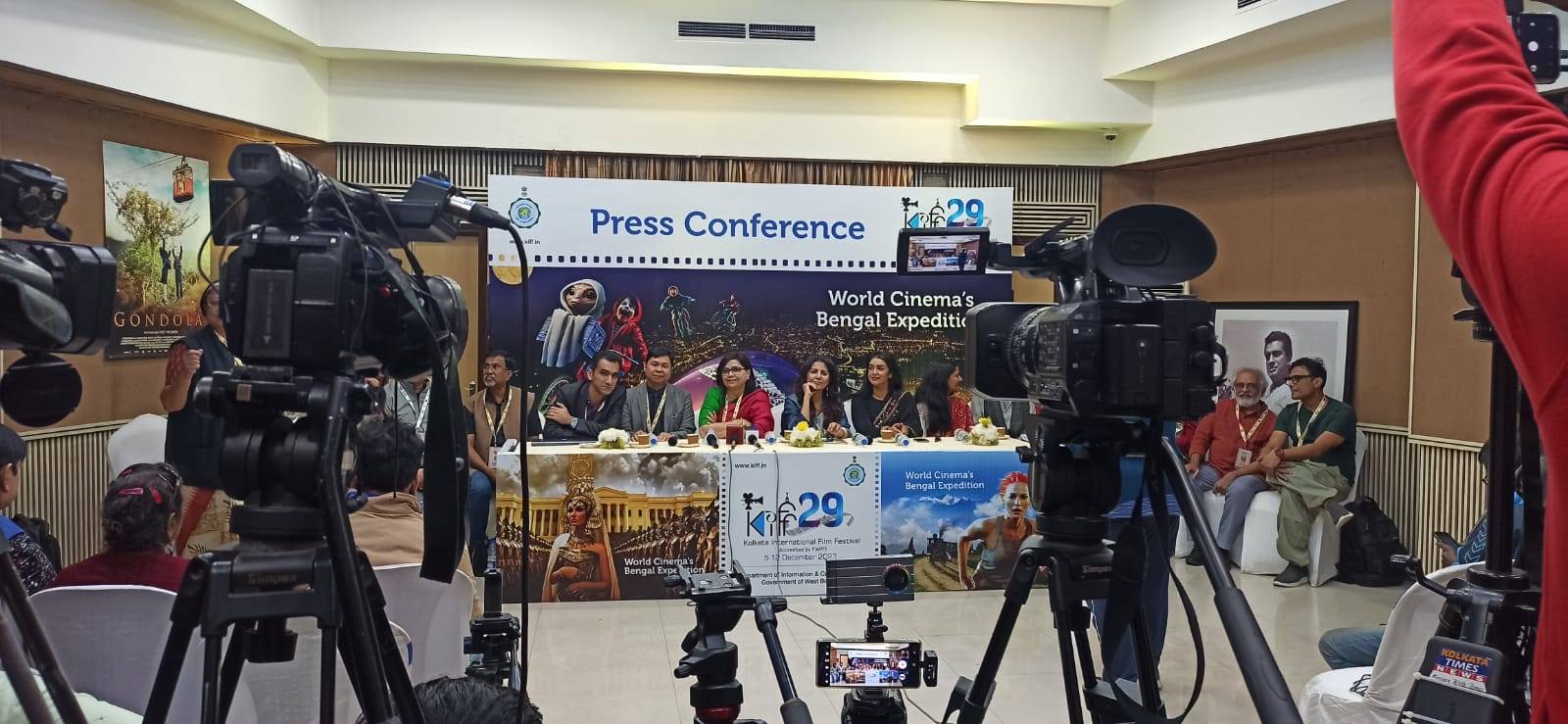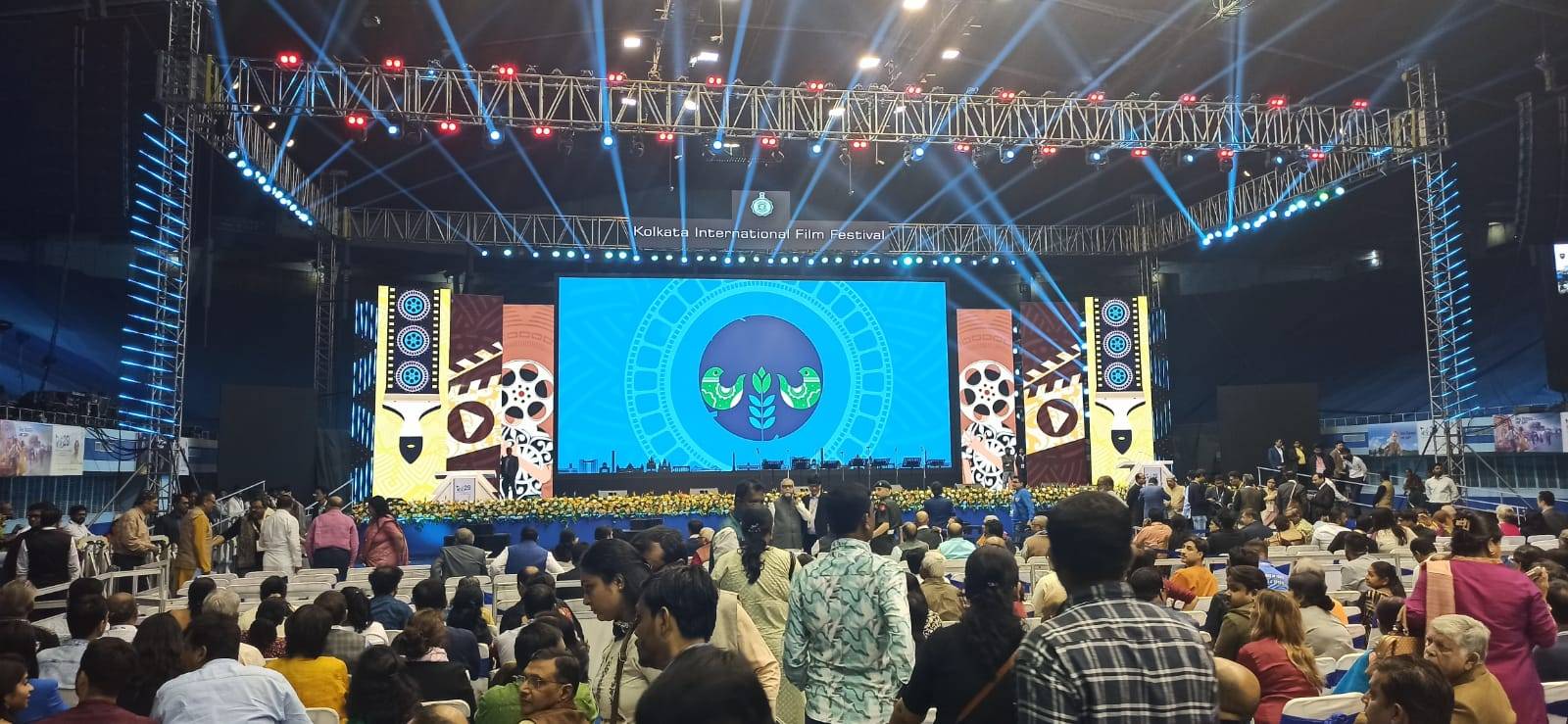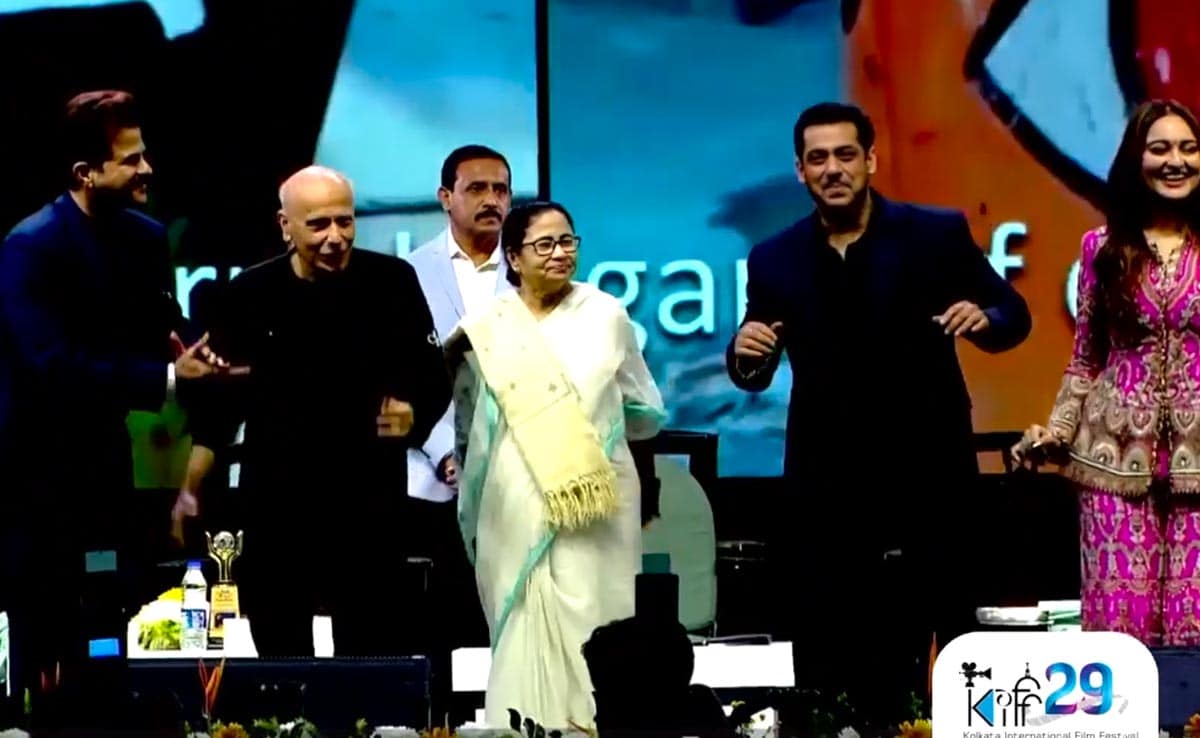BOOK IN INDIA, BREAD IN AZERBAIJAN
Back in August, when I was selected as a jury member for the NETPAC section of the 29th Kolkata International Film Festival, I trembled. Because negative thoughts on India have long been deeply and indelibly rooted in the minds of not only mine, but also many others. I do not need to list these ideas, they are known to everyone. As the time for the date was approaching, the excitement grew. However, while remembering quote “don’t believe half of what you see and none of what you hear” and convinced myself that the opinions about India are biased.
Posters, announcements, and video clips of the aforementioned festival were exhibited at every step, right from Kolkata airport, indicating the gravity and scale of the event and how important the film festival is here. This situation was repeated on the way from the airport to the hotel by taxi. For a moment I had the impression that the festival had already started and I was already inside it. The evening of my arrival was the opening ceremony of the festival. The ceremony was organized in the stadium, in the style of a real rock concert. Thousands of movie lovers gathered at the stadium 2-3 hours before the opening hour. Kolkata Chief Minister Mamata Banerjee and famous Indian film star Salman Khan opened the ceremony. Traditionally, the ceremony started with national dances and continued with speeches by special guests. Later, awards were presented to filmmakers who have contributed with special services in the field of filmmaking.
What I have talked about so far happened on 5th of December. From the next day, the screening of the films competing in the festival started. I should also mention that we watched the films together with the audience. Films were screened in a small town called Nandan, built for the festival. 8 movie theaters, several exhibition halls, bookstores, VIP lounges, shooting pavilions, press conference halls, etc. are available here. The entrance, which was free for the jury members, was (300 rupees – 6 AZN) for the audience. If the movie was starting at 2:00 p.m. local time, the audience would line up from around 9:00 a.m. to get tickets. The queues were several hundred meters long. Considering that India currently has a population of 1.3 billion, and Kolkata’s population is 31 million, and a very large proportion of this population are moviegoers – such long queues are not surprising. People were civilly standing for hours, patiently waiting for their turn. As an Azerbaijani, this scene seemed strange and incomprehensible to me. I approached one of the queues and asked the first people I met: “Why did you stand in line here, under the sun, 2-3 hours before the movie started?” You can easily watch this film even after the festival.” The answer I received surprised but embarrassed me more: “It’s more pleasant for us to watch the premiere of the film.
In addition, our compatriot filmmakers spent millions of money and made films. Why don’t we just spend 300 rupees and watch this movie? This is our duty as citizens.” This answer really embarrassed me. Firstly, it is because of the number of films made in 5 years in Azerbaijan is much times less than the number of films made in one month here. I am not even mentioning the budget and quality of the films. Secondly, very few of the local films released in our cinemas make any money. Audiences as if consider it a shame to watch local films in cinemas. Everyone prefers to watch local movies online. When new films are not made, everyone speak with one voice: “Why aren’t new films made in our country?” or “Why hasn’t our victory been shown in the cinema yet?” and so on. After the state, (perhaps before it) it is the responsibility of the audience to support and develop the field of cinema.
Speaking of the state, I must mention an interesting point. West Bengal has a parliamentary system of government and the aforementioned Chief Minister Mamata Banerjee has been in office since 2011. According to the information I received, this lady, who was the leader of the opposition until then, was quite an aggressive oppositionist and “calmed down” after coming to power. In India, government-funded films are dominated only by songs, music and dance. Despite this, the government provides funding through third parties to independent directors and screenwriters in order to create alternative and dissenting views in the country, and these films are not censored at all. Independent filmmakers can criticize the government and express their displeasure in their films. Provided that there is no insult! The films of these directors are screened in cinemas across the country, sent to foreign festivals, but not broadcast on television, despite this, these authors are not persecuted for their political views, on the contrary, they are provided with every opportunity for creativity. In general, there is great respect for people working in cinema in India. If a person works in even the smallest position in the field of cinema, the respect for him/ her among the society is much higher than the respect for officials and officers in Azerbaijan.
At the festival venue, in the city, at the airport, at the hotel where I stayed, people showed me the highest respect and care when they found out that I work in the field of cinema and participates as a jury member in the festival – they let me enter without waiting in a queue, if I bought something, they were offering me the best product, etc. Employees of the cinema industry in Azerbaijan can only dream of such respect. I would like to draw another parallel between Azerbaijan and India. Many objects are worshiped in India and especially the cow. I wouldn’t even call it worship, this act can also be called respect. Another object of respect and reverence in India is books and notebooks. Regardless of what the book is about, whether the notebook is blank or written, they should not be placed below a person’s eyes or chest. This step is severely criticized there and considered disrespectful. One of the books accidentally fell on the ground at one of the kiosks in the festival area, and immediately several local residents rushed to pick it up. It is no coincidence that India has been declared the most book reader nation in 2023, according to official statistics of 2023. In Azerbaijan, such “respect” is shown to a piece of bread that has been thrown on the ground, is harmful to health, and is of questionable quality. Regardless of age, as soon as everyone notices a piece of bread on the floor, they pick it up, kiss it, put it on their eyes and hide it somewhere high above the ground. Let’s go back to the festival.
7 feature films competed in the NETPAC section. Documentaries were also among. Regardless of the country of the film, the national anthem of India was played on the screen and everyone in the hall had to stand up before each screening. Disrespectful viewers were gotten the hook from the hall by cinema employees. After each screening, an informal meeting was held with the film crew attending the festival and the film was discussed. I want to share my thoughts on some of these films.
The first to be screened was the Kyrgyz-produced feature film “God’s Gift” (Tenirberd) directed by Asel Zhuraeva. The film, which at first glance touches on sentimental feelings, actually is on political issues. The film has an interesting architectonics, juxtaposing concepts such as old and young generation, socialism and capitalism, God and government, worship and atheism.
The feauture documentary “Toward Happy Alleys” in the competition made a special impression on the audience, including me. The film’s director, a young lady, Sreemoyee Singh, learns Persian, travels to Tehran in order to witness how resistance has become a daily act of survival in Iranian society. Despite the strict censorship of the Islamic regime, the director collected a number of candid interviews with Jafar Panahi, social activists and other people. These conversations, carried out with a basic camera over a period of 6-7 years, reflect the passionate concerns, fears, hopes and dreams of a people on the verge of revolution. The bold step of the female director can only be applauded. Despite the threat of imprisonment and even execution, she managed to show the true faces of the existing system and political leaders.
Another feature documentary “No Winter Holidays” competed at DokuBaku International Documentary Film Festival this year and even won an award. Directors Rajan Kathet and Sunir Pandey are also the cinematographers of the film. The image and color resolution of the film is developed at the highest level and will not leave any audience indifferent. The plot of the film tells the story of two old women named Ratima and Kalima who live in a remote mountainous area. Due to the harsh winter, everyone moved from here to the summer pasture. Despite being only neighbors, these two oldies are united by the memories of a man who was once their husband but has now passed away. These women, widowed by the same man, are united by resentment rather than memories. Throughout the film, these women, who are engaged in daily household chores, only bickbite when they don’t see each other, but when they are together, they forget the past and only discuss village life. At first glance, this story, which is ideal material for the fiction was created by the authors in a docufiction style. No matter how many attempts are made to document the everyday life of women, it cannot be overlooked that a large part of the film is made up. It is clear that the authors is able to win by following the traditions of “festival cinema” due to the excellent image resolution. As a result, a not so honest, incomplete story is presented to the audience. However, the authors should be thanked for making the film by staying in a remote village for months in harsh winter conditions.
Finally, the winner of the NETPAC category was our unanimous jury-voted feature film “Broken Dreams Stories From the Myanmar Coup”, an almanac of nine short films by eight directors. The main thing that caught my attention in this film was that the names of almost the entire crew were kept anonymous in the credits. The events in the film are set in 2023, civil conflict that broke out in Myanmar after the military coup attempt against the repressive system that took place two years ago. As a result of this conflict, the family members of most of the film’s team were arrested, killed and exiled. The authors, who managed to escape had to hide their names in the credits of the film in order not to cause problems for their family members and friends in Myanmar. Directors hidden in different parts of the world made films in the most diverse styles, keeping in virtual contact with each other. All films instill the feeling of fighting no matter what, not losing hope and being there for your loved ones despite everything. Over two hours long, the film is done in a variety of styles, including interesting solutions such as a solo performance, an empty chair, a distant dialogue of a goldfish thrown into a small bottle, and more.
The NETPAC section, as well as all other sections of the festival I’m talking about in general, included quite interesting films. In addition to all these, the last films of great directors such as Wim Wenders, Ken Loach, Nuri Bilge Ceylan, as well as world cinema classics, were screened at the festival out of program.
This festival, which I attended as an editor of the Kinoyazar.az website with the presentation of Azerbaijan Union of Filmmakers, was a great and important experience for me. Even my colleagues at the festival, NETPAC Jury Chairman, Filipino Professor Patrick Campos and Indian filmmaker and film critic Modhurima Sinha, confirmed that this festival is significantly different from other prestigious world film festivals. I presented this article to you with the hope that the film market, environment and filmmaking in general will reach this level in the near future in our native Azerbaijan.
İlgar Guliyev

